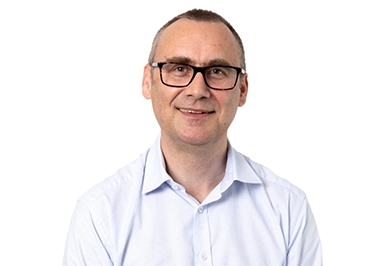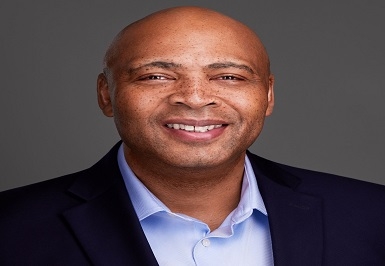Daring to dream planning for recovery and revival
 Peter Richardson
Peter RichardsonDelivering the right opportunities: why our recovery will need stimulus, innovation and a human touch
In the first Collaboration Forum of Series 4, journalist and broadcaster Paul Mason shared his views on bouncing back, how the stars will align for the green economy, and why humans will need to amplify their emotional and social skills. In this article, I will break down five talking points from the event, including his new online milk order.
There will be a surge in consumer demand.
Everyone wants to know when ‘normalness’ will return; a sense of confidence that helps businesses make positive decisions about investment and growth. Paul started his talk by explaining three scenarios from the OECD about global recovery. On current projections, the world economy will return to its pre-pandemic position, in the third quarter of 2021. An optimistic forecast brings that path forward by a few months but the downside scenario, which Paul believes is “unlikely”, could mean a recovery at the back end of 2022.
He explained that UK consumers had a lower appetite for risk than their counterparts in the US and Europe. This means that while new purchases are currently on hold, and credit card debt is being repaid, there would soon be a surge in consumer confidence. He believes we will “excel ourselves in terms of slightly crazy consumer spending” as the recovery takes hold. This will be driven by the ‘grey pound’, as older people with money to spend, start flooding back to car show rooms, new houses and holidays.
“A little under a year ago, all of us were thinking ‘will there ever be a vaccine, will the NHS fall over?’ “There are answers to those questions now,” he said, “so as long as the vaccine stays ahead of the mutations people can see a pathway back to normal. There is definitely light at the end of the tunnel.”
Key insight: We are six to nine months away from recovery, so businesses are being encouraged to plan for ‘normalness’ coming back in the autumn.
The shift to environmental economics is on course for 2025.
Paul’s work on the cycles of capitalism predicts that automation and information technology are changing the game. This is the first time in history that we have an industrial revolution that doesn’t create more jobs than it destroys, he believes. But it’s not a tragedy if we consider what is happening behind the scenes. It means that long-term opportunities, in particular the shift to a greener economy, can be supported in their infancy by governments. This will happen alongside a groundswell of attention from the private sector on environmental and social issues.
A slide from Protiviti, which was discussed during the event, showed that money flowing into European sustainable investment funds reached €54.6bn in the second quarter of 2020. There are public stimulus funds in Germany, France and the European Union, and a call from the Bank of England, for companies to understand the financial risks they face from climate change. The environmental, social and corporate governance (ESG) agenda isn’t new, but its importance has suddenly hit home.
“Let’s be blunt,” said Paul, “I think the business world has been slow to understand how important this was going to be. There have been two decades of interaction about corporate social responsibility, with people sitting on the edge of businesses telling their leaders it was going to happen. But a massive green transformation will create many jobs. If we transform the economies of the UK towards zero net carbon, the realistic estimates are that we would spend between £100bn to £200bn. By the mid-2020s, I think we will be at the beginning of the green upsurge. My urge to government is to just get on with it.”
Key insight: Government support will help drive the green economy, as companies realise their environmental and social impact could be headline news.
This industrial revolution needs new thinking.
A second result of this industrial revolution is the changing nature of work and wages. This will happen over many years, Paul said, because in a fully automated economy there will be a shortage of work for the population to do. He has long been a big advocate of universal basic income as a means of supporting people through this transition. He sees a world where there is a lot of leisure time, culture and services, but not a lot of low skilled work, as it exists now.
“There are about 470,000 van drivers at the moment, driven by the growth in ecommerce,” he explained, “and about nine in ten of those are male. But in the long-term strategy of Amazon, there will be no van drivers. The British government has to think, what will those van drivers do? They are also a politically explosive group: many are migrants, many are right leaning, white men.”
Paul also explained that as all this is happening, we have to be aware of the phenomenon of “bullshit jobs.” The flipside of automation is that an economy invents jobs that don’t really need to exist. Once example is hand car washes: there used to be thousands of installed car washes at petrol stations, now there are people doing it instead. “That’s not capitalism; it’s the reverse,” he said.
Key insight: Profound economic change will disrupt people’s livelihoods, so concepts like universal basic income could help them to transition into future industries.
Human-centric companies need human skills to match.
The ability for people to work in digital environments and come up with new ideas is amplified by strong emotional and social skills. The pandemic has highlighted the need for compassionate and supportive leadership, but it has also tested the ability of individuals and teams to respond positively in an uncertain environment.
Paul told a really interesting story about the training he had received as a journalist working for the BBC and Channel 4. Every three years, he was sent on a course to learn skills to survive in hostile environments. Senior executives and journalists were put through their paces by SAS members, on a bootcamp that would test their resolve, and help develop their confidence.
“I have never met a single person who finishes that course less confident than they were before,” he said. “The human skills you gain from being fictitiously kidnapped for half a day are amazing. We need to nurture human-to-human skills and teach people how to handle high intensity situations.”
He also suggested that the more companies engage with intelligent technology, the more they will need to examine their moral codes. “If you are going to launch a machine onto humans, which is going to interact with them as a quasi-human being, your company has to have a moral philosophy, a theory of human beings,” he explained. “How do you want to treat people? The fact is, that the principles of ESG tell us you will probably be judged by it financial in the long term, as well.”
Key insight: The pace of technology change will only amplify the importance of human-to- human skills, and the moral codes of businesses.
There are great opportunities, but let’s help our young people to see them.
Many companies are taking stock, looking at their business models, and making changes. Consumer brands are going online only to ride on the back of recent growth and help protect their bottom line at a time of radical change on the high street. Paul revealed that after 40 years without a milkman, he now had a delivery to his house, with a new online business in the sector.
“It’s an opportunity for marketers and social media professionals, because online marketing is difficult,” said Paul. “It’s also an opportunity to rethink costs in a business because you can distribute the workforce. I’ve always thought we would end up with a massive ecommerce sector and that is what we have got. If you are an entrepreneur starting off with a pot of money or a loan, you have got a good incentive to think about what you can do online.”
But he still believes there is an inspiration gap. With a disrupted generation of young people, he says we will have a portion of the workforce that will feel insecure as a result of the pandemic. But these are the same people that will build the economy of the future.
“I speak a lot to young people and they often believe that the only way to make it is to become famous,” said Paul. “When I think of access to the high-skilled, high value workplace, it is often a closed workplace. I have been lucky enough as a journalist to get into engineering workplaces across the world, for example. You are signing non-disclosure agreements, you are being scanned and checked; when you get in there, you think ‘what an amazing place’. But people in their sixth form at school don’t know much about them.
“The other big problem we have had in the UK is that finance is a magnet for young people. Even in my own family, I can see people who may still go into the city. We have got to find a way of incentivising people to get involved with the green, automotive, and smart future. The key is to give people a feel of it; you’ve got to get them to base camp so they can believe they can do it.”
Key insight: There are clear opportunities in technology and ecommerce, but let’s not forget the support young people will need to access some of these opportunities.



